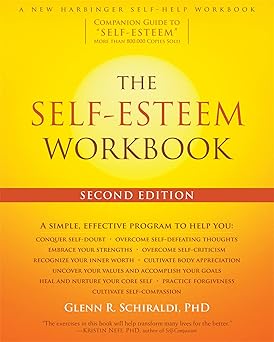What is Imposter Syndrome?
Impostor syndrome is the persistent belief that your success is undeserved and that, sooner or later, you will be “found out” as a fraud — despite clear evidence of competence, ability, or achievement.
People experiencing impostor syndrome often:
Attribute success to luck or timing
Downplay their skills or knowledge
Set unrealistically high standards
Live with chronic self-doubt, anxiety, or fear of exposure
Importantly, impostor syndrome is not a diagnosis. It’s a psychological pattern, commonly linked to self-esteem, identity, and early relational experiences.
To understand why impostor syndrome persists even in capable people, it helps to first understand what self-esteem is and how it develops internally rather than through external achievement.
Many people who struggle with impostor syndrome are objectively capable — sometimes highly so. The problem is not ability. It’s how ability is internally evaluated.
Why Capable People Are Often the Most Affected
Impostor syndrome doesn’t usually show up in people who lack insight. It tends to appear in people who:
Reflect deeply
Care about doing things well
Hold strong internal standards
Ironically, these qualities increase self-monitoring and self-criticism.
For many, the internal question isn’t “Am I good enough?”
It’s “When will someone realise I’m not?”
This fear can lead to:
Overworking and burnout
Avoidance of opportunities
Difficulty receiving praise
Chronic anxiety masked as “high functioning”

Clever Fox Self-Care Journal – Daily Reflection Notebook
Daily Reflection Notebook – Mental Health & Personal Development Planner, Meditation & Mood Log
View on Amazon →The Role of the Inner Critic
Impostor syndrome is often driven by a harsh inner critic — an internalised voice that:
Minimises achievements
Magnifies mistakes
Constantly raises the bar
This voice rarely comes from nowhere. It is often shaped by:
Conditional approval in childhood
High expectations without emotional attunement
Environments where worth was tied to performance
Over time, the inner critic becomes the primary source of evaluation, replacing external reality.
Impostor Syndrome and Self-Esteem
At its core, impostor syndrome reflects unstable self-esteem — self-worth that depends on outcomes rather than being internally held.
When self-esteem is fragile:
Success feels temporary
Failure feels exposing
Neutral feedback feels threatening
This is why reassurance rarely “sticks.” Compliments bounce off, while criticism sinks in.
People often say: “I know logically I’m capable… but I don’t feel it.”
That gap between intellectual understanding and emotional belief is where impostor syndrome lives.
Perfectionism, Over functioning, and Burnout
Many people cope with impostor syndrome by overfunctioning:
Preparing excessively
Saying yes too often
Working harder than necessary
This creates a vicious cycle:
Anxiety drives overperformance
Overperformance leads to success
Success reinforces the belief that rest or authenticity would lead to failure
Burnout often follows — emotionally, mentally, and sometimes physically.
Impostor syndrome doesn’t just affect confidence. It affects capacity.

The Self-Esteem Workbook, 2nd Edition Paperback
See yourself through loving eyes by realizing that you are inherently worthy, and that comparison-based self-criticism is not a true measure of your value
View on Amazon →Attachment, Belonging, and Identity
Our sense of belonging is formed early through relationships where acceptance may have felt consistent, conditional, or uncertain. When approval depends on behaviour, achievement, or emotional compliance, belonging stops feeling inherent and starts feeling earned. Over time, this shapes how a person relates not only to others but to themselves.
If belonging felt conditional — based on being “good,” “capable,” or emotionally manageable — identity often becomes performance-based. Instead of an internal sense of “I am acceptable,” the belief shifts toward “I must earn my place.” This can lead people to monitor themselves closely, adapt quickly to others’ expectations, and suppress parts of themselves that feel risky or unacceptable.
When belonging is conditional, people often shape themselves around what is acceptable rather than what feels genuine. This gradual loss of authenticity is explored in Identity, Authenticity & the True Self.
These adaptations rarely stay internal. The same strategies used to secure belonging early in life often replay in adulthood, particularly in close relationships. People may over-give, avoid conflict, seek reassurance, or fear emotional exposure to maintain connection.
How these early belonging strategies repeat in adult relationships — influencing closeness, safety, and emotional dynamics — is explored in Relationship Patterns & Emotional Safety.
Why Impostor Syndrome Persists (Even With Evidence)
Impostor syndrome survives because it is emotionally protective, even when it’s painful.
Believing “I fooled them” can feel safer than believing:
“I matter.”
“I deserve this.”
“I am allowed to take up space.”
Letting go of impostor beliefs often requires more than mindset work. It involves:
Emotional processing
Identity shifts
Relational safety
This is why many people find that impostor syndrome eases in therapy — not because they are told they are capable, but because they experience being seen without performance.
Can Impostor Syndrome Be Overcome?
Yes — but not by “thinking positively” or collecting more evidence.
Helpful approaches often include:
Working with the inner critic
Developing internal validation
Understanding conditions of worth
Reconnecting with authentic identity
Change tends to happen gradually, as self-esteem becomes more stable and less dependent on achievement.
When Support Helps
If impostor syndrome is:
Persistent
Affecting work or relationships
Linked to anxiety, burnout, or low mood
then professional support can be useful.
Therapeutic work may explore:
Early relational patterns
Self-esteem development
Emotional regulation
Identity and self-trust
This is not about “fixing” you — it’s about understanding why self-doubt became necessary in the first place.
Impostor syndrome isn’t proof that you don’t belong.
It’s often evidence that your worth has been tied to performance for too long.
When self-esteem becomes internal rather than earned, the fear of being “found out” loses its grip.


